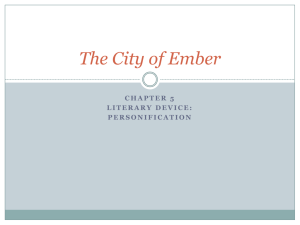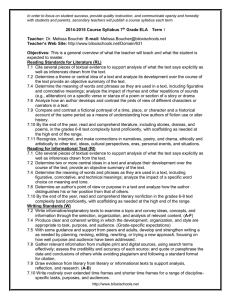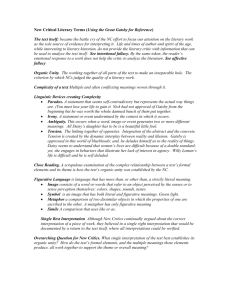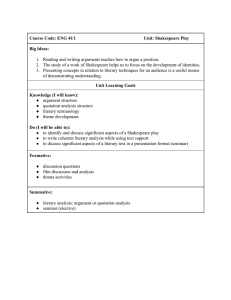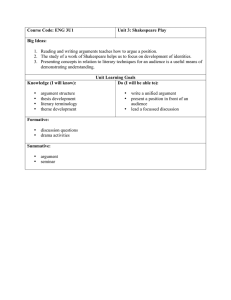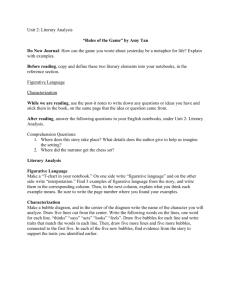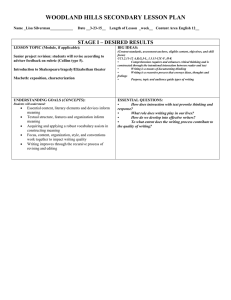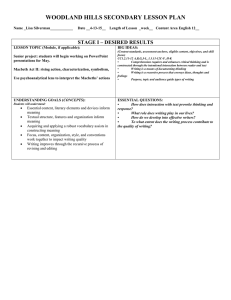Julius Caesar Drama Terms
advertisement
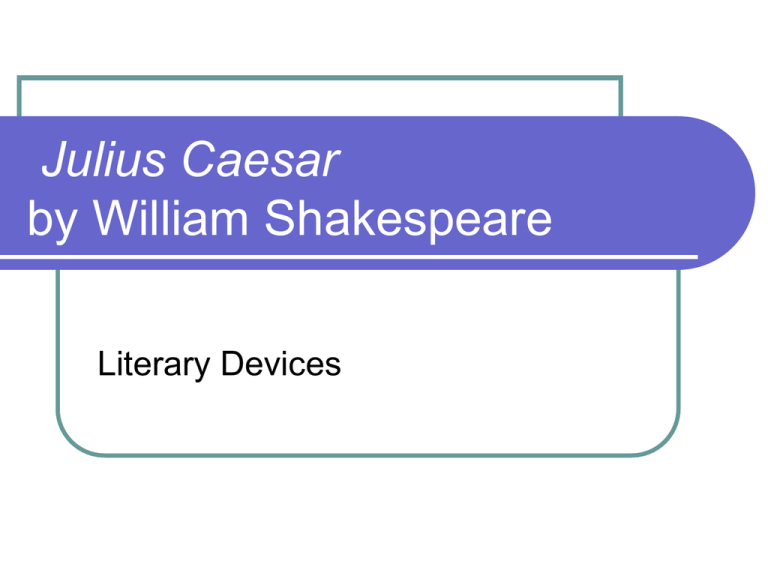
Julius Caesar by William Shakespeare Literary Devices Anachronism an event or detail that is chronologically out of its proper time in history Ex. The sword is an anachronism in modern warfare. Conventions A customary feature of a literary work, such as the use of a chorus in Greek tragedy, the inclusion of an explicit moral in a fable, or iambic pentameter in Shakespeare’s plays. Conventions are the defining features of particular literary genres. Pun a humorous play on words, using either 1) two or more different meanings of the same word OR 2) two or more words that are spelled and pronounced somewhat the same but have different meanings. Figurative Language Speech or writing that departs from literal meaning in order to achieve a special effect or meaning Similes, metaphors, personification, etc. are all examples of figurative language Simile A comparison between two things using “like” or “as” Ex. Dead as a doornail. Ex. “I could rap around these other rappers like a cobra snake.” - Drake Metaphor A direct comparison between two things WITHOUT using “like” or “as” Ex. Joey is a beast on the basketball court. Personification Giving human qualities to something that is non-human Ex. My computer has lost its mind! Apostrophe addressing something that/someone who is not present; dead as if living, absent as if present, inanimate as if animate; Ex. Oh feet, don’t fail me now. Pathetic Fallacy attachment of human feelings and traits to nature Aside private words that a character in a play speaks to the audience or to another character, which are not supposed to be overheard by others on stage. Soliloquy a long speech in which a character who is alone onstage expresses private thoughts or feelings.
